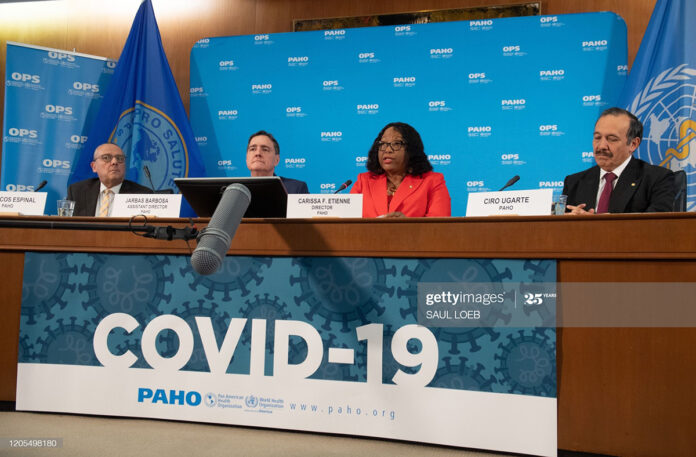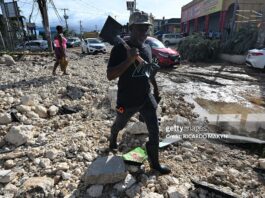
By Julia Symmes Cobb
BOGOTA, Colombia, Thurs. Sept 24, 2020 (Reuters) – It may take several tries to find the right vaccine for COVID-19, the Pan American Health Organization’s (PAHO) director Carissa Etienne said on Wednesday, as she urged countries to begin preparing vaccination plans.
Global reported infections of COVID-19, the disease caused by the new coronavirus, are climbing toward 32 million, according to a Reuters tally, while deaths approach 1 million. Countries in Latin America and the Caribbean are reporting about a million new infections every two weeks.
“We hope scientists do uncover an effective vaccine that offers lasting protection against COVID but it may take a few tries before we find the right one,” Etienne said during PAHO’s weekly virtual press conference.
“Early vaccines may only provide partial protection or may not work for everyone. We don’t yet know which vaccine will be found safe and effective and how it will work,” she said.
Participation in the global COVID-19 vaccine facility known as COVAX is the best way for countries to protect those at severe risk of the disease, Etienne said.
Fourteen countries in the region have agreed to self-finance their participation in the program, Etienne said, while another 10 are eligible for cost support. A further 13 have said they intend to participate, she added.
Some countries missed the program’s initial deadline, but said over the weekend they would commit as soon as possible.
“We do know that if we don’t prepare now, we will miss the opportunity to benefit from (a vaccine) quickly,” she said. “Countries cannot wait to have all of the answers before they start planning and preparing to deliver a COVID vaccine.”
National regulators will need to swiftly asses and approve vaccines without cutting corners, Etienne said, adding PAHO was already in contact with regulators.
Influenza could put additional pressure on health systems around the region, PAHO Assistant Director Jarbas Barbosa said, recommending countries seek widespread coverage with influenza vaccines.
(Reporting by Julia Symmes Cobb; Editing by Bernadette Baum)






